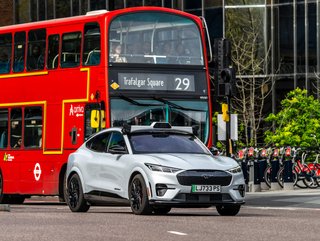The Startup That Secured Europe’s Biggest-Ever AI Investment

The startup, developing AI tech to power self-driving cars, has raised US$1.05 billion in funding.
With tech giants Microsoft and Nvidia among the companies investing, Wayve's latest, series C funding round, led by investment firm SoftBank, represents the largest investment in an AI company ever in Europe.
Wayve said the recent funding round, bringing its total funds raised to around US$1.3 billion, will allow it to help build the autonomous cars of the future.
This announcement, although going along with the cross-industry interest in AI, is bucking the trend of investment in autonomous driving.
GM earlier this year announced it is cutting spending by about half (US$1bn) on its autonomous car subsidiary Cruise, and Apple cut its autonomous car project altogether to refocus those efforts on AI.
What is Wayve?
Founded in 2017, and led by co-founder and CEO Alex Kendall, Wayve focuses on making AI software solutions for autonomous driving.
Where Wayve departs from other players in the sphere is by targeting OEM carmakers and other fleet operators to install its technology into their vehicles, rather than create or operate the cars themselves.
Kendall has revealed that Wayve decided not to close off its options in future by partnering with a single manufacturer for its Automated driving systems.
The technology it is developing, ‘embodied AI’, emphasises training self-driving cars to navigate based on their own interactions with the environment, and even from human behaviour.
Their approach involves using deep learning and reinforcement learning techniques to train self-driving cars to navigate without relying heavily on high-definition maps, extensive sensor suites or preprogrammed interactions or detailed maps.
The AI behind the autonomous driving
Wayve's AV2.0 with end-to-end learning AI driving model promises to allow vehicles to better navigate complex urban environments, as it integrates perception and control into a single neural network architecture - driving decisions directly from raw sensor data using self-supervised learning.
The startup was the first to develop and test such an end-to-end deep learning autonomous driving system on public roads.
It differs from a number of other autonomous vehicles, like Alphabet’s Waymo's, which utilises a combination of various approaches, including deep learning, classical machine learning techniques, and rule-based algorithms, to safely navigate.
AV2.0 can adapt to operate on any type of vehicle, from passenger cars to delivery vans, and it is being developed to train its LLM on photorealistic simulations, as well as utilise generative AI for object prediction, and model introspection.
Anytime, anywhere, in any weather; watch Embodied AI in action 🚘#RideTheWayve #EmbodiedAI #SelfDriving #AutonomousVehicles pic.twitter.com/DUb99JN9aA
— Wayve (@wayve_ai) May 9, 2024
To help build this, Wayve and already-established investor Microsoft are collaborating to implement supercomputing technologies for the development of AI foundation models in autonomous vehicles.
The UK unicorn highlighted the belief that its AI autonomous driving technology will be the one to overcome safety concerns of unexpected actions by drivers, pedestrians, or environmental elements that have previously seen their rollout slowed.
According to research company GlobalData’s report, Thematic Intelligence: Autonomous Vehicles, the leap from Level 1 autonomy to Level 2 has proven insignificant compared to what’s needed for Level 3 ‘eyes-off’ AV operation.
Currently, Wayve advertises autonomous vehicle solutions for L2+ through to L4.
Each new autonomous vehicle needs reportedly around US$700 worth of AI chips, according to GlobalData’s report.
AI chip leader Nvidia’s entry as a shareholder underscores the belief industry has in the startup, and highlight the benefits it can gain from access to the new investors’ portfolio of AI offerings.
Wayve’s AI-powered technology is currently being used in six vehicle platforms’ advanced driver systems, including Ford Mustang’s MachE and Jaguar’s electric I-PACE.
******
Make sure you check out the latest edition of AI Magazine and also sign up to our global conference series - Tech & AI LIVE 2024
******
AI Magazine is a BizClik brand






